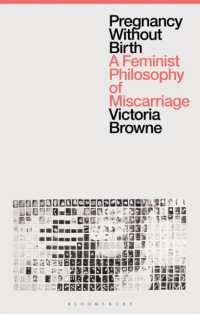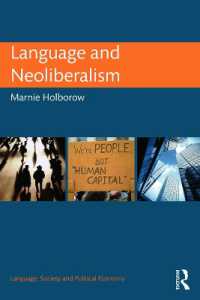Full Description
This book traces the psychological journey of accident survivors with locomotor disability, as they move from processes of suffering to healing. It provides a holistic understanding of disability by looking into the embodied understanding of the body as shaped by the socio-political and cultural discourses around impairment.
The book addresses the lack of critical qualitative research on the health and well-being of those with disabilities by developing a nuanced understanding of the experiences of people with disabilities (PWDs). It showcases the challenges PWDs face and process of recovery and regaining agency through interviews and personal narratives. It also highlights the help and support they require and the steps we need to take to better understand and address the everyday needs of PWDs.
An important addition to the research on disability studies in the Global South, this book will be of interest to researchers and students of disability studies, critical health psychology, mental health of vulnerable populations and sociology as well as professionals working in the area of health and rehabilitation. People engaged in policymaking related to disability services, rehabilitation and rights will also find this book helpful.
Contents
Note On Terminology to Depict 'Disability'
Acknowledgements
Foreword
1 Locomotor Impairment and Disability: Global and Indian Contexts
2 Methodology: The Challenge of Foregrounding the Silenced Voices
3 Embodied Existence: Attending to Impaired Body and Related Regrets
4 Struggles of Living with a 'Dependent' Identity: Negotiating 'Mobility-related' Difficulties
5 Exclusion of 'Differently Abled' or 'Less-Abled' in the Neoliberal World
6 Experience of Healing Despite Embodied and Stigmatized Existence
7 The Emerging Perspective on Disability
Appendix A
Appendix B: Demographics Form
Bibliography
Index







